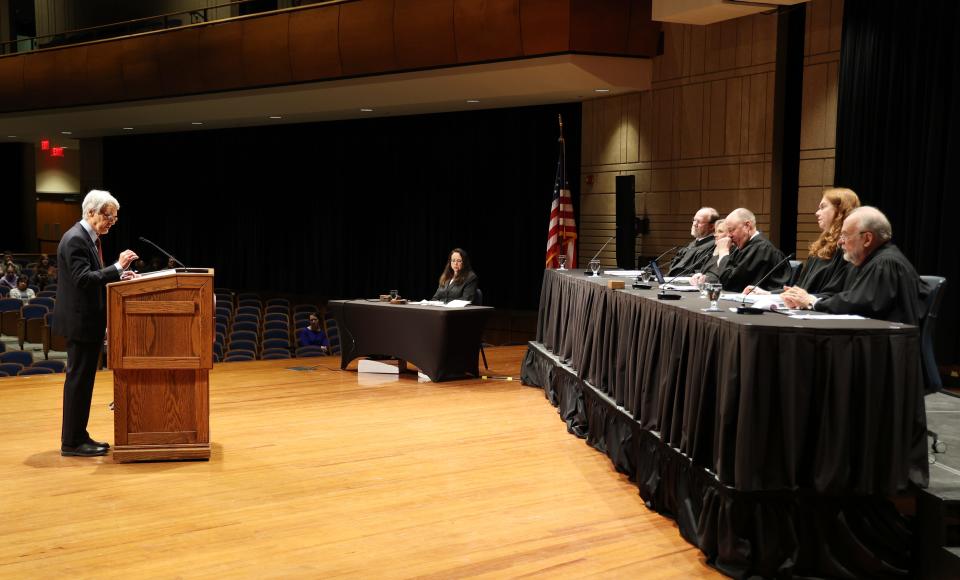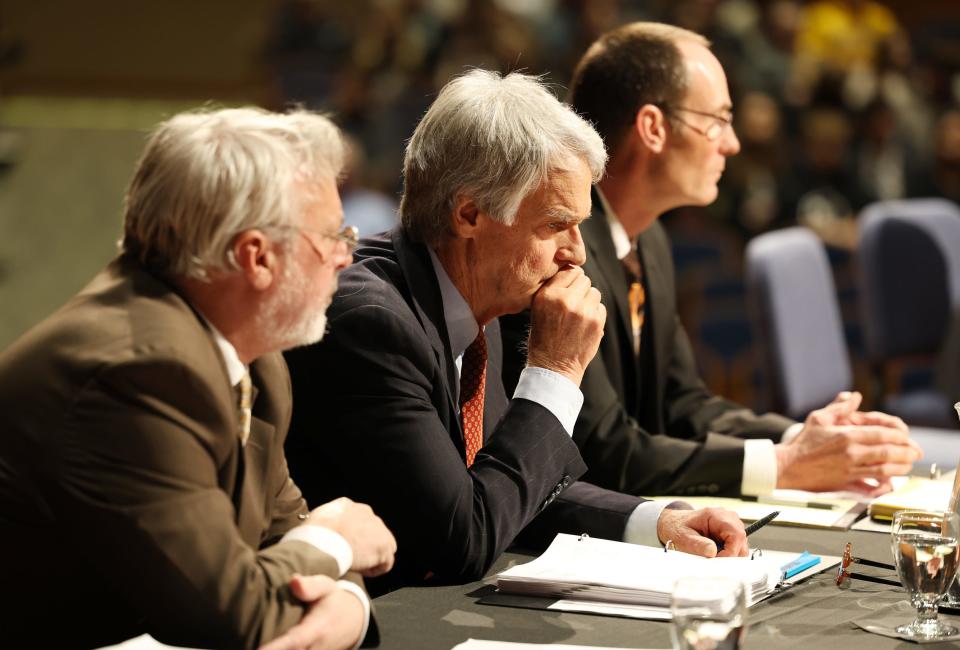T. Denny Sanford attorneys argue to keep affidavits sealed in South Dakota Supreme Court
BROOKINGS — State Supreme Court justices heard arguments Thursday in a case to unseal affidavits used to authorize search warrants into a child pornography investigation concerning billionaire banker and philanthropist T. Denny Sanford.
It's the latest in the two-year court battle between Sanford, the Argus Leader and ProPublica. Justices had ruled in 2021 that some items in the search warrants are public information, but Sanford's team of lawyers continued to argue the affidavits for five search warrants should remain under seal.
"Being a representative of the general public does not make you an interested party for purposes" of the public record law in question, Sanford's attorney Stacy Hegge said Thursday. "That has to mean something more than just allowing the general public an opportunity to come in and challenge."

Hegge argued the Argus Leader and ProPublica as media organizations should not be classified as interested parties in the lawsuit, and Sanford and his attorneys should have the opportunity to review the sealed documents to determine what should be redacted before their release.
Jon Arneson and Jeff Beck, lawyers for the Argus Leader and ProPublica, said the Supreme Court had already determined the search warrants should be unsealed.

The Argus Leader learned about the "Implicated Individual" case in 2020, in what Hegge described as an "illicit" manner, and requested the records, which are normally considered public documents under state law.
The South Dakota Attorney General's Office conducted a criminal investigation into Sanford, who before November 2021 had been identified in court documents as an "Implicated Individual," between December 2019 and May 2022. Sanford was not charged after the South Dakota case ended, because the AG's office ruled no chargeable offenses had been found.
More:T. Denny Sanford to appeal release of child pornography affidavits
As a result of the closure of the investigation, Second Circuit Court Judge James Power wrote in an email that the court expected the affidavits in support of the search warrants to be unsealed. But Hegge, one of Sanford's attorneys, motioned to delay the unsealing of the documents, which resulted in the hearing Thursday.
It's unclear if Sanford is continuing to be investigated in other jurisdictions and on a federal level.
"These are public records," Arneson said. "Now, the rest of this is superfluous."
Beck said Power should be allowed to determine what personal identifying information should be redacted in the affidavits.

"We're not asking this court to craft some redaction statute or to interpret state statute," he said. "The statute is clear, that is an open document for public access. Now, if there's something in there they don't want, then they can follow the statute."
Such redacted information typically includes phone numbers, names of minors, social security numbers and addresses. Hegge argued Sanford should be able to see if there's the disclosure of trade secrets in the affidavits.
Justices will make their determination in the case in later months.
This article originally appeared on Sioux Falls Argus Leader: T. Denny Sanford attorneys argue to keep affidavits sealed in SD Supreme Court

